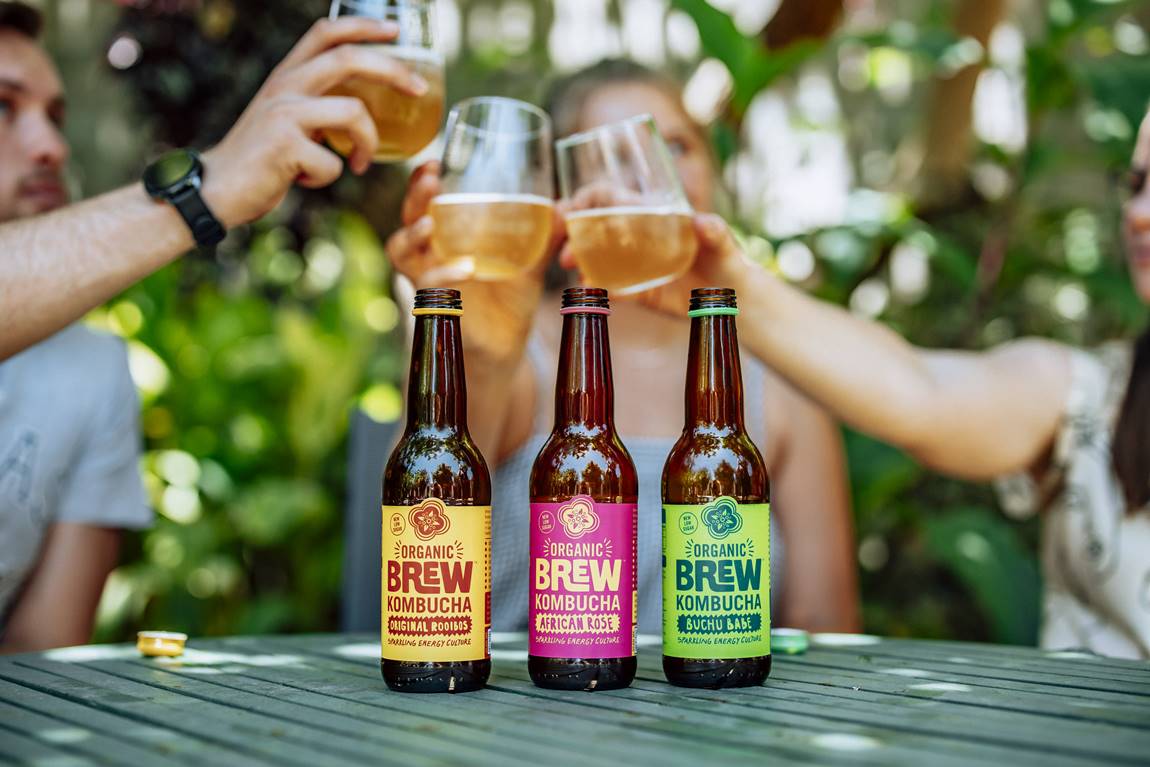South Africa’s small but thriving kombucha industry has become an influential player in the domestic beverage economy.
With growth comes the need to ensure quality and consistency on a large scale; a difficult challenge for a beverage that is traditionally brewed in glass jars and goes through a volatile fermentation process. Using innovative brewing methods, local industry leaders are taking on the challenge, one brew at a time.
“The local production and labelling of kombucha is largely unregulated when compared to other fermented and brewed drinks, like wine or beer. At the moment, anyone can make a beverage and label it kombucha, which means that one bad brew can affect the entire industry – unless we introduce ways to monitor quality and traceability, at a government level,” says Alex Glenday, Director at Brew Kombucha, South Africa’s first provider of certified organic kombucha.
Taking a step towards the future, the team at Brew Kombucha have developed a unique brewing technique, informed by food safety systems, brewing experts, and food scientists. Using custom-designed equipment, from brewing vessels to fermentation tanks, their process is based on a beer-brewing model, with kombucha-specific adaptions.
“We describe it as a ‘clip-on’ system, because elements can easily be added as the brewery expands. So far, it has helped us go from small batch glass-jar brewing to a system that ensures large-scale consistency in a product that is naturally volatile. This has allowed us to develop a product that people can trust, because we can manage consistency in what is, by nature, a wild ferment,” says Glenday.
Their kombucha is brewed in stainless steel equipment, which ensures a high-quality, and consistent product in line with the Global Food Safety Initiatives benchmark – versus homegrown or plastic-brewed kombuchas which can vary in taste, colour, alcohol content, and health benefits.
An important part of maintaining consistent quality is managing everything that goes into the kombucha. “Using organic products ensures our kombucha can be labelled as certified organic. Products that are labelled this way help to give buyers the credibility they need to trust the product integrity and traceability, from the farmer of each ingredient all the way to the brewery,” says Glenday.
“We also bottle-condition our kombucha, which means that secondary fermentation happens in the bottle – giving the brew a natural carbonation. This process, used by champagne and artisanal craft beer producers, is complex and difficult to get right, but contributes to a high-quality end product,” says Glenday.
The final key aspect that industry leaders are hoping to build into kombucha regulation is sustainability. “Ultimately the environment is what supports all social and economic success, so it needs to be the first consideration. Products that are made in an environmentally-friendly way are generally better for your body too, and this can be a huge draw factor for health-conscious consumers,” says Glenday.
Located in Muizenberg, Cape Town, the Brew Kombucha brewery reuses 50% of its manufacturing process water for their temperature control system, while 90% of other organic waste is recycled, repurposed, and composted. The company has also achieved recognition as a finalist for the corporate social responsibility (CSR) and sustainability category of the World Beverage Innovation awards.
For more information, visit www.brewkombucha.co.za.



